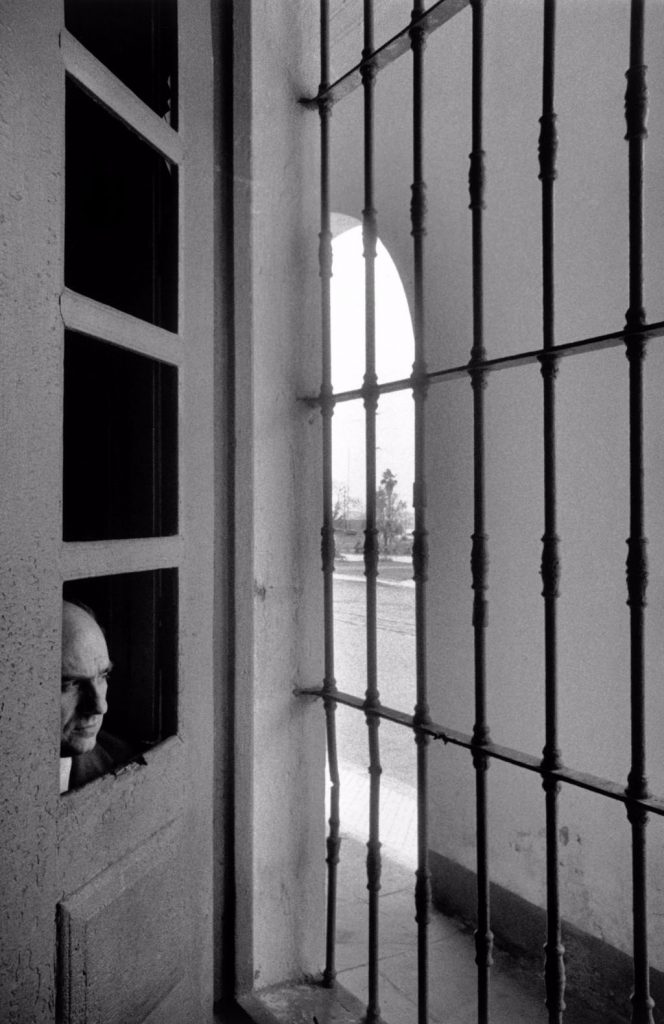
The politics of the Cold War embroiled the nations of Latin America, and it this clash of ideologies is no more apparent than in This photo of a political prisoner in prison is indicative of the political strife of the Cold War era in Paraguay. Taken in 1955 by Cornell Capa, this photo is of a political prisoner of Alfredo Stroessner’s regime. It features a political prisoner looking out from his cell towards a grated gate. It is a great example of how Latin American countries – even landlocked countries such as Paraguay – were embroiled in the geopolitics of the Cold War.
Paraguay, despite being a relatively isolated, landlocked Latin American nation, was still subject to the Cold War politics that embroiled both Central and South America. Stroessner, who was responsible for the imprisonment of the pictured political prisoner, ruled Paraguay from 1954-89. He led a coup that ousted Federico Chávez and ruled Paraguay unopposed and in a cult of personality for 35 years. One of the main reasons the Stroessner was able to rise to power as well as stay in power for so long was because he was an anti-communist and the United States supported him thusly.
John Charles Chasteen, in the section of Born in Blood in Fire known as “Revolution,” noted that following the Second World War, Latin American nations received “a lean diet of diplomatic pressure from the United States” instead of any substantial aid like the US provided to Europe (Chasteen, 257). This was especially true in Paraguay, where the United States was happy to support the anti-communist Stroessner while turning a blind eye to his dictatorial acts. With the support of the United States, Stroessner was free to hold Paraguay under his thumb for decades. He was able to deny civil liberties, able to turn Paraguay into a one-party state, and, as the photo suggests, able to keep, torture, and kill political prisoners of his own volition. This was a common trend in other Latin American countries, such as Chile, where the United States propped up right-wing regimes simply because they were anti-communist.
Works Cited:
Chasteen, John Charles. Born in Blood and Fire. 4th edition. New York: W.W. Norton, 2016.
Cornell Capa. PARAGUAY. 1955. Political Prisoner. Accessed April 27, 2021. https://jstor.org/stable/10.2307/community.9763612.
By Owen Arace
